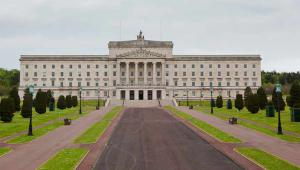From tomorrow Northern Ireland’s Department for Finance will take responsibility for setting the Stormont budget, which means it will gain immediate control of a sum of money equivalent to 75% of this year's funds.
Funding for existing services will stay at their current level and this is not expected to affect key services in the short-term.
However, voluntary and community groups which receive government funding on a year-to-year basis face a funding uncertainty and many have warned staff they are at risk of redundancy.
The move comes after yesterday’s deadline to form a coalition government between Unionists and Nationalists came and went without an agreement.
After 10 years of power-sharing at Stormont, Northern Ireland has been without a functioning government since January.
The BBC reports in a staff memo, the head of the Northern Ireland Civil Service Sir Malcolm McKibbin has promised to try to maintain a business as usual approach during what he describes as "this time of uncertainty".
McKibbin confirmed the civil servants would use the limited powers to keep cash flowing in order to deliver essential public services but he stressed that these powers were no substitute for a regular budget agreed by executive ministers.
Northern Ireland secretary James Brokenshire told Sinn Féin and the Democratic Unionists they had "a small window of opportunity" to break the deadlock.
Brokenshire has the power to reintroduce direct rule from Westminster or call another election but he opted to give the two sides more time after he said there was "no appetite for any immediate snap election".
He added: “"We're rapidly approaching a point at which Northern Ireland will not have an agreed budget.
"From Wednesday financial resources to allow Northern Ireland department to deliver key public services will fall under the control of the Northern Ireland civil service."











